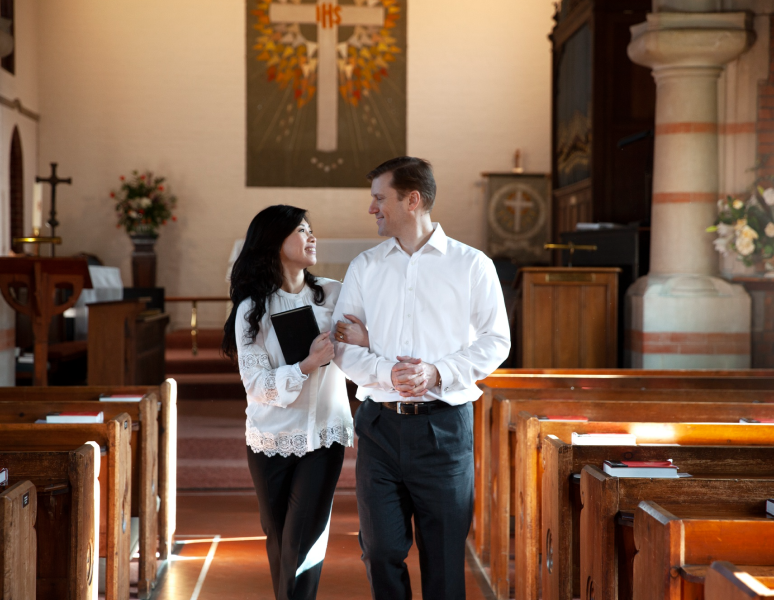
Many pastors unknowingly enter the fire, carrying the burden of the congregation in their minds and on their shoulders, all while casting their vision. It’s a taxing responsibility, and although pastors rely on Christ for rest, it’s important to recognize that rest is necessary and ordained by God. Failing to realize this can quickly lead to burnout among pastors.
Regrettably, it’s often too late when pastors finally realize the toll it has taken. Grave consequences have already occurred due to pastoral burnout. Before delving into recovery and prevention strategies, it’s crucial to understand the troubles associated with burnout.
The Problem With Pastor Burnout
Trouble manifests in various ways, but it originates from a single individual and spreads outward. It starts with a souring attitude in the pastor and swiftly progresses to depression. Once it infects the congregation, the church begins to suffer. Opportunities are lost, morale declines, and churches have been known to fail as a result. Simply put, when the mind falters, vision becomes dull and passion for the people around also diminishes.
Passion and Vision
Initially, it may not appear too concerning, right? However, when the pastor’s passion for the gospel fades, it becomes perilous for both him and the congregation he preaches to each week. The words lose their substance, lacking true nourishment for both the pastor and the people. So, let’s take a step back for a moment.
Burnout becomes apparent through weariness. Even before the congregation notices it, the pastor’s family feels its effects. He has less energy for his children, attending activities, teaching them, or simply engaging in conversations. His relationship with his wife may suffer as she senses his detachment and lack of complete presence.
On the pastor’s side, serving in ministry may no longer bring refreshment. The love he once poured into building the church community might now feel like an obligation. This can lead to bitterness, a growing resentment towards his role and the people.
If left unaddressed, bitterness evolves into resentment. The fatigue that the pastor and even others overlook transforms into a suffocating sensation. Why would someone willingly choose to remain in an environment where they feel suffocated? They wouldn’t.
Hence, you can understand how this extinguishes the desire to be at church, hampers the enjoyment of the people there, and even undermines the ability to cherish the original passion that led the pastor into ministry. This impact is felt by everyone involved. There’s actually a saying that encapsulates this situation:
“Where Sheep Are Led, They Go”
When a pastor loses passion and no longer loves sharing that passion with the congregation, it inevitably impacts the entire community. Unity diminishes, contention increases, and there is a noticeable lack of direction and warmth. But what does this truly imply?
It signifies that, as burnout permeates the congregation, they are being led astray. It may sound harsh, yet it holds true. If the pastor is burned out, the spiritual direction of the community veers towards sin rather than away from it. The pastor sets the tone for the group’s spiritual journey.
If that tone is marked by callousness or even anger, it is not a recipe for holiness. Holiness is achieved through gentleness, compassion, and the qualities described in God’s Word for His people. However, burnout obstructs the pursuit of holiness and steers everyone toward severe consequences.
Leadership Lost in Sin
When people become callous, their awareness diminishes. They may overlook the hurting refugee in need of love or fail to notice the addict desperate for help before a relapse. Consequently, more lives are shattered, and families are torn apart. But the consequences don’t stop there.
In our spiritual journey, we’ve all encountered what some refer to as a “dry season,” a period when our motivation for spiritual discipline wanes. And we’re all aware of how much more susceptible we become to sin and temptation during those times. I’ve personally experienced my most noticeable transgressions during my driest days.
So, why wouldn’t a pastor? Why wouldn’t a critical leader of a spiritual community face some of the most intense spiritual battles? They would, and they do. I’ve witnessed it firsthand — and, likely, you have as well.
Paradigm Church
I witnessed my best friend, the pastor of a church we started in his basement, go through a period of faltering. He no longer desired the company of others, including close friends and the congregation. He grew weary, even of laughter. This took a toll on our friendship and his marriage. However…
I am delighted to share that I also witnessed his remarkable recovery. Yes! I saw him overcome pastor burnout and experience a revitalization of love for people, a renewed joy in Christ, and genuine refreshment. So, let’s delve into the strategies for preventing and recovering from burnout.
How to Avoid Pastor Burnout
The weighty responsibilities carried by pastors come with significant consequences. We understand that. Pastors attend to the spiritual, emotional, and occasionally even physical well-being of their congregations (unfortunately, some of us know this all too well). But who cares for the pastor? In truth, the it’s church leaders themselves who need to take active steps. These include:
1. Have Elders
To care for the pastor within the church, it’s crucial to have additional elders. Relying solely on the head pastor is burdensome and unsustainable. Sharing the load among elders is essential.
One effective way to support the pastor is through teaching cycles. By allowing others to teach, the pastor can receive necessary rest, preventing burnout. Additionally, the messages delivered will hold more significance for both the pastor and the congregation.
Consider the analogy of an athlete. Competing without breaks takes a toll on their mind and body, leading to injuries and a dwindling passion for the sport. However, taking breaks allows for recovery and revitalizes their vigor.
Likewise, pastors need breaks through teaching cycles. It may seem simple, but the impact is profound. We must recognize our human nature and the need for rest.
2. Get Rest
Rest is primarily found through our reliance on Christ, our hope that never fades. Engaging in prayer and meditating on this truth is truly incredible. However, there are practical strategies we can implement for rest as well. One key strategy is avoiding spreading the pastor too thin. Building a team of trusted elders, deacons, and friends can help alleviate stress.
Delegate financial responsibilities, such as budgeting, to others. Let different individuals lead outreach groups, as the purpose of discipleship is to involve the entire church body. With a strong team, there’s also an opportunity for the pastor to take a leave of absence, similar to how even John Piper does. Surprisingly, an extended break from the role can benefit both the ministry and the pastor.
Don’t fear the need for such a break, whether called a sabbatical, leave, or by other names. It is a positive and necessary step. However, sometimes pastors struggle to step away, even for a brief respite. That’s when it becomes crucial to have a mentor who can provide the right perspective. A mentor can help the pastor see beyond the blind spots created by stress and make wise choices.
3. Seek Mentorship
Having wise counsel is invaluable. The external perspective gained from someone with seasoned experience provides protection from potential disasters. Having a retired elder, a trusted friend, or someone the pastor can rely on is crucial. Leading alone is not sustainable.
While a pastor’s primary reliance is on Christ, they also need the support of fellow believers to cultivate the community we are all called to be a part of. However, it’s important to acknowledge that establishing a mentor relationship requires genuine vulnerability, which can be challenging to achieve.
4. Vulnerability and Its Saving Aspect
We often hide our stress, especially as leaders, striving to maintain the illusion of strength like our childhood heroes. But real life doesn’t work that way. We need each other, it’s inherent in our design. Concealing stress only builds a false façade that can be dangerous. The more we strive for perfection, the more likely we are to crumble internally.
However, when a leader acknowledges their hardships and triumphs alongside their people, it becomes incredibly inspiring. In His perfection, even Christ allowed Himself to struggle and then overcome, ultimately saving us. He endured the cross until He conquered death itself. There is no greater struggle than that.
By the way, Christ promises that we will also face struggles for His sake (just look at how Paul handled it).
In this journey, we are designed to rely on Him and each other. It can be tough to admit this, but I’m not suggesting seeking life advice from strangers at Walmart. I’m referring to a close-knit community of devoted followers of Christ, consistent and non-judgmental so that we can continue building together.
Having dependable people around us strengthens the pastor’s mindset. They provide a sense of reassurance when stress arises. Faithful deacons and friends who consistently lend support keep a church healthy. However, even with their presence, pastors can still experience burnout occasionally. The question then becomes:
How can we possibly recover? How can we regain lost love, passion, relationships, and energy? How can we restore our marriages and nurture our relationships with our children before they fall apart?
5. Recovery
Recovery is possible. Redemption is within reach, even though it may sometimes feel far off.
Whether the journey is neither lengthy or swift, the path to recovery shares similarities with avoiding burnout, albeit with a unique perspective.
6. Vulnerability (Again)
Vulnerability remains crucial. Acknowledging and admitting burnout is essential. However, a challenging aspect to consider is knowing when to say “no” before returning from leave. While perseverance is admirable, it’s better to avoid harming the church by prematurely toughing it out. Genuine restoration is vital. Be brutally honest about your mental, spiritual, and physical state for now.
7. Teaching Cycles
Perhaps it’s not necessary to be physically absent from the church altogether. Maybe you can still be present but take an extended break from teaching. Allow others to lead sermon series throughout the year. Take the time to focus on other aspects of cultivating a thriving church community. Engage in those activities. However, don’t hesitate to go if you genuinely need to be away. Needing to take leave is not something to feel guilty about.
8. Travel
Having a designated place to recharge away from home is a blessing that resonates with everyone. Whether it’s a cabin in the mountains, a coastal house, or visiting family in your or your spouse’s hometown, these locations offer a chance to rejuvenate. Traveling to new places can also provide fresh perspectives, which can be incorporated into your extended break.
Speaking of extended breaks, let’s delve into the concept of a long-term sabbatical that can last several months. While accepting may be challenging, it could be the key to preserving your church. Isn’t it worth it if a pastor takes one full year off every seven years but can minister to the church for three times as long?
Instead of succumbing to burnout, a pastor should prioritize taking an extended rest period. Referencing the earlier example of John Piper’s eight-month sabbatical, it’s clear that burnout requires significant and uninterrupted downtime. During this period of rest, there are a few essential things a pastor can and should do.
9. Build Something New
To the pastor, let go of worries about the church and instead focus on praying for it. Stay connected with your friends, not to discuss church matters, but to genuinely care for them. During this time, explore new hobbies, engage in creative pursuits, or join a sports team to divert your attention.
Embrace activities that stimulate your mind and body in different ways. Gradually, you will begin to feel the positive impact. (Here’s an article on the topic that offers further guidance, particularly the last two sections).
It’s crucial to recognize that recovery is a precious gift. Don’t withhold it from the pastor. Value his role, express gratitude to God for it, and sincerely wish him well in his journey to restoration. Remember, by supporting his recovery, you are not only helping him but also safeguarding the church and his family, as you are all interconnected.
The Final Word on Pastor Burnout
Having explored the challenges of pastoral burnout, prevention strategies, and the path to recovery, there is one crucial aspect remaining: doing everything for the glory of God. Seek His wisdom and guidance in navigating burnout, and implement the strategies we discussed with that motivation in mind.
Additionally, if you’re looking to alleviate financial stress, consider exploring the user-friendly software provided by DonorWerx. It offers a simple solution worth considering. Schedule a Discovery Call with us today to learn more. And if you’re a congregant, rest in Christ and demonstrate love for your pastor by allowing him the necessary rest. You’ll be amazed what this simple step can do.


